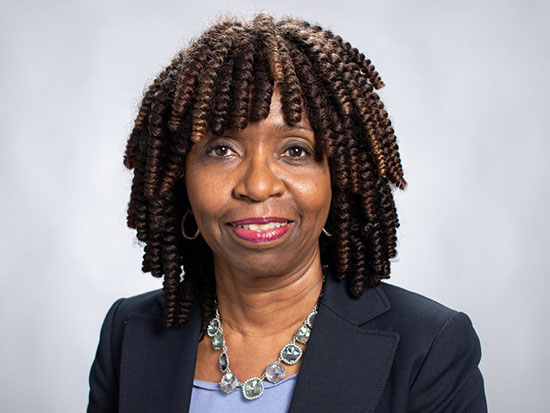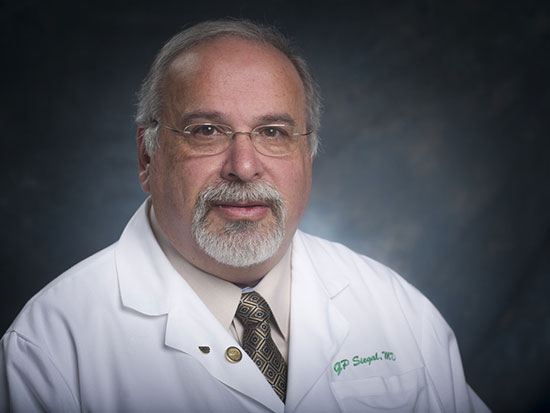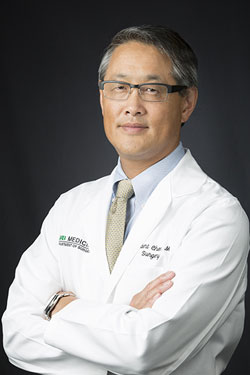As they trawl the sea of information, scientific journals are much more patient with their catch than most publications. They prioritize depth over speed: It is not unusual for journal articles to take a year or more to travel from submission to publication in typical times. These times are far from typical, however. Faced with a problem like COVID-19, which is altering society and spinning off questions at warp speed, what is a journal editor to do?
This is a question affecting the many UAB faculty who hold leadership positions with academic and scientific publications. We asked four editors to share their experiences and the big questions that the coronavirus pandemic poses in their fields.
 Disaster analysis
Disaster analysis
Nasim Uddin, Ph.D.
Natural Hazards Review
For the past three years, Nasim Uddin, Ph.D., professor in the Department of Civil, Construction and Environmental Engineering, has has been editor-in-chief of Natural Hazards Review, a peer-reviewed journal published by the American Society of Civil Engineers. “Typically we get publications related to tornadoes, earthquakes, droughts, cyclones — any calamity,” Uddin said. “We look into how the community suffers in these disasters and what needs to be done to address the design of roadways, buildings and other structures so that this doesn’t happen in the next disaster.”
As the scale of the COVID-19 pandemic became clear earlier this year, “people began to start contacting us to say, ‘I have an article on COVID-19: will you publish it?’” Uddin said. “And even though this looks different from a hurricane or an earthquake, it is certainly a disaster. We have critical infrastructure — the energy supply, water supply, roadways — and it needs to be maintained.”
| Disaster engineers are curious: As the COVID-19 disaster plays out on screens, instead of face-to-face, have we increased or decreased our capacity to collectively solve problems and take action to reduce risk? |
Uddin and the journal’s editorial team decided to produce a special collection on a range of topics related to technology and communication in response to the COVID-19 pandemic. Normally, in the wake of a disaster, people meet at an office or work site and provide the necessary services, Uddin noted. “Now all of a sudden people are locked down and working remotely. So the question is how much are those services, and the performance of those services, being impacted?”
The shift in interactions “from direct, face-to-face conversations to indirect, electronic means of communication is occurring on a scale that has no precedent,” Uddin said. “Moreover, the response to the global pandemic declaration has been uneven and varied, depending on factors such as wealth, availability of health care, public welfare systems and the extent of authoritarianism in government. One of the important unanswered questions we would like to address: To what extent has this sociotechnical infrastructure increased or decreased the capacity to build collective cognition of risk, and consequently, collective action to reduce the risk?”
Another research question that Uddin hopes to address relates to “the effects of the overall reduced level of travel,” he said. “Was it successful in reducing sickness and fatalities from the coronavirus? How did it impact the performance of services from lifeline infrastructures? Will there be a future with less traffic? What methods of monitoring information flow were effective in practice at the intersection of technical and social information infrastructures? Of course all these answers will require data for more direct correlation between trips and the level of services from critical infrastructures.
 Who gets left behind?
Who gets left behind?
Verna Keith, Ph.D.
Society and Mental Health
Verna Keith, Ph.D., chair of the Department of Sociology, is one of several department faculty members serving on the editorial board of the journal Society and Mental Health, a primary medical sociology journal. That stands to reason, as UAB is home to the nation’s only doctoral program in medical sociology.
Society and Mental Health has not yet put out a call for COVID-19-specific papers, but the Journal of Health and Social Behavior, which has overlapping readership, has called for contributions to a special issue on the pandemic, Keith said. Context, a journal of the American Sociological Association, and The Gerontologist, a journal in which sociologists often publish, also have special issues published or planned.
Keith is in talks with colleagues at a university in New York state to collaborate on a study of the geographical disparities in COVID-19 pandemic outcomes. The crux of the question, she said, is “where do people live and how does that relate to mortality and prevalence?”
| Sociologists are asking: "Which stressors — financial, caregiving, grief, social isolation — have been most impactful for mental and physical health during the crisis?" |
Medical sociologists also are interested in how geography, race and socioeconomic standing influence testing and treatment, Keith said. They want to know “which stressors — financial, caregiving, grief, social isolation — have been most impactful for mental and physical health during the crisis, and which resources have been most effective in coping with the crisis,” she added. “And what is the perceived stigma associated with receiving a COVID-19 diagnosis?”
Outside her own specialty of medical sociology, sociology researchers also are asking, “How will the virus exacerbate structural inequality in the United States along racial, gender and economic lines?” Keith said. And “in what ways has the virus impacted major social institutions — religion, education, medicine, political, financial, family, criminal justice and more?”
 Setting the standard
Setting the standard
Gene Siegal, M.D.
Laboratory Investigation
A basic-science journal published by the Nature group with a reputation for selectivity, Laboratory Investigation is “focused on pathologic mechanisms of disease,” explained its editor-in-chief, Gene Siegal, M.D., Ph.D., executive vice chair and Robert M. Mowry Endowed Professor of Pathology in the Department of Pathology and interim chair of the Department of Genetics. “In recent years, though, we’ve become a little more broad in publishing technical reports on new methods that have been developed, for example.”
The journal has had “a ton of submissions related to COVID-19 — and the vast majority we’ve rejected,” Siegal said. “There have been a lot of descriptive reports and single-case reports, but that’s not what we publish. For example, we’re interested in what protein the COVID-19 virus attaches to that we can potentially use as a therapeutic target.”
| Pathologists want to know: "Why do some viruses cause us to make antibodies and others don’t? Is it true that people with mild disease in COVID-19 don’t make antibodies? Every time you answer a question you create a whole new series of questions." |
These mechanistic questions are Siegal’s top concerns as a pathologist. “We understand that the virus’s main organ target appears to be the lung, but in a subset of patients the coagulation system seems to go awry,” he said. “Why is that? Why does it not target relatively younger people nearly as much as older people?” And “like all good science,” Siegal said, “every time you answer a question you create a whole new series of questions: Why do some viruses cause us to make antibodies and others don’t? Is it true that people with mild disease in COVID-19 don’t make antibodies?
“We’re happy to take scientifically rigorous examination studies on any of these topics,” Siegal said. “Pathology covers all of medicine, so there’s nothing we wouldn’t consider as long as it focuses on the mechanism of the disease. We all recognize that if we can provide novel insights into what is going on, then that is good for the journal and good for all of society. That’s what we’re focused on.”
 Fresh cuts from COVID-19
Fresh cuts from COVID-19
Herb Chen, M.D.
American Journal of Surgery
The suspension of elective medical procedures across the United States in March and April was disruptive to many surgeons. Herb Chen, M.D., UAB surgeon-in-chief and chair of the Department of Surgery, took on another new challenge during that time. The first week in April, he began his role as editor-in-chief of the American Journal of Surgery, the official journal of seven major surgical societies. Chen, who holds the Fay Fletcher Kerner Endowed Chair at UAB, already had significant editorial experience: He has been an associate or section editor for Annals of Surgery, Scientific American Surgery and The Oncologist and serves on six other journal editorial boards.
The editor-in-chief’s duties include “selection, editing, acceptance and reviewing manuscripts for publication in the journal,” Chen said. “I am responsible for and control the scientific content of the journal.”
| Surgeons say: How can we minimize spread of the disease when surgically caring for our patients? |
The publication has “a few articles coming out soon on surgical issues in COVID patients,” Chen said. “In press” articles on the journal’s website now include “Elective surgery in the time of COVID-19” and “Surgery during the COVID-19 pandemic: A comprehensive overview and perioperative care.” “Over the next few months we will learn about some of the surgical issues that arise in patients with COVID,” he noted. “We will also look at ways to minimize spread of the disease when surgically caring for these patients.”
